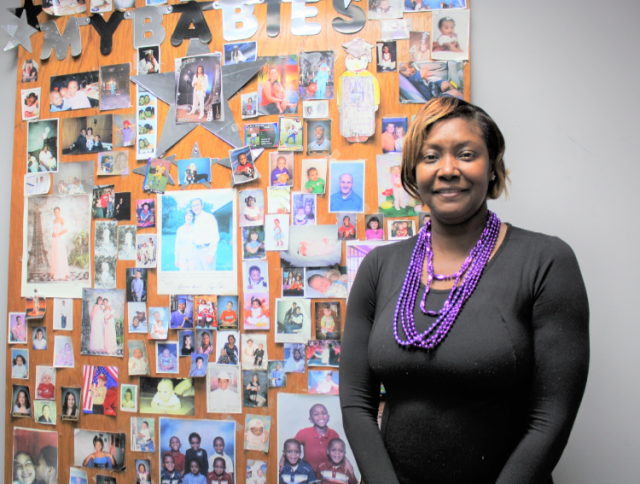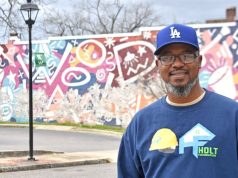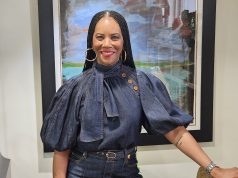By Sydney Melson
The Birmingham Times
No matter the age group, no matter the problem, Tawanna Morton finds a way to help people in a variety of ways through her substance abuse prevention program.
“I had one young man who started selling drugs because his mom was a user,” she said. “One day, he got up [for school] and there was no power in the house. They had to wear uniforms [to school], and he didn’t realize he did not have on the blue pants for his uniform because, of course, in the dark you can’t tell blue from gray.”
The young man went to school wearing the wrong uniform and was confronted by the principal.
“[The young man] was sent home. He was too embarrassed to let people know that [his house] didn’t have any power, so he started selling drugs and got caught. He was sent to treatment and [received needed] counseling, which is wonderful,” said Morton.
These kinds of stories are why having access to treatment options are important, said Morton, the intake director and founder of Crossroads to Intervention, a Homewood, Alabama-based program that provides a broad range of services—including help with substance use issues, domestic violence situations, anger management problems, and conflict resolution strategies—to adults, adolescents, and their families.
Morton, 50, who founded the program in 1992, said the services are especially important in the African American community, where people “don’t [often] talk to others about their problems.’
“[In many Black families, people are raised to believe], ‘You don’t tell people your business.’ That means people don’t get help. They suffer with mental illness and don’t realize they need help until they’ve killed someone, they’ve burglarized a store, they’re stealing food.”
Crossroads to Intervention was created for people who haven’t had access to mental health services.
“There’s nothing shameful about suffering with mental illness or a substance use disorder. It’s OK to get help,” Morton said. “Some people deserve to be in prison [for their crimes], but not everyone deserves to be in prison. … Some people can be rehabilitated, especially if they’re young.”
One of the more important issues that need attention? Anger management.
“I am often asked to do seminars to help people deal with a lot of the stuff [they encounter] in life. People are angry, and the first thing they think they’re supposed to do is lash out,” said Morton. “If one family member comes in for help with anger management, we offer services to the entire family at no additional cost. If I work with just one person, all that work will go down the drain because he or she will return to that same environment.”
The Crossroads to Intervention approach has been successful, she said.
“When they get here, they learn so many tools and they look forward to coming. We often get letters from children’s teachers saying [students] are not being aggressive or argumentative anymore,” she said.
A Healthy Mind
Morton comes from a family of service. With a father and brother who served in the U.S. Army, and an uncle and brother who served in the U.S. Marines, she knows what it means to help others.
“We are a product of our environment,” she said. “I wanted to give back because I saw so many people in need.”
Morton grew up in Vestavia Hills, Alabama, and attended North Roebuck Elementary and Louis Pizitz Middle School. She went on to attend Vestavia Hills High School, where she made an observation that influenced her career path.
“If you had an issue with substances and your parents were white and affluent, you got to go to treatment,” she said. “If it happened in the Black community, you were out there with no help and no assistance.”
After graduating from high school, Morton attended the University of Alabama at Birmingham (UAB), where she earned a degree in psychology with a minor in social work.
“First, I thought I was going into medicine because I wanted to help people. I don’t like needles, though, and I’d have to learn to stick people,” she laughed. “My counselor told me one of the most important things you can do is make sure someone has a healthy mind. With me being a Christian, it goes right along with Proverbs 23:7 [King James Version]—‘For as [a man] thinketh in his heart, so is he.’”
After graduating from UAB in 1992, Morton worked at the Birmingham Metro Treatment Center, a substance abuse facility in Homewood that offers a broad range of services, including methadone treatment programs.
“I was looking at this revolving door of all the people who were getting treated. There were people [in Birmingham] who had no idea treatment was even offered,” she said. “So, what could we do? I got with some ladies who sat on the board [of the clinic] and said we should start a treatment facility for anyone who has a problem with substance use or mental illness.”
And Morton, who was recently named one of 33 women to serve as part of Birmingham Mayor Randall Woodfin’s inaugural core leadership team for the city’s Women’s Initiative, was well equipped to take the helm of such a facility, thanks to her extensive and impressive resume. In addition to her UAB credentials, she holds a Master of Counseling degree from Alabama State University. She is a registered addiction specialist, alcohol and drug abuse prevention specialist, and domestic violence counselor.
She also works with returning veterans. In addition, she is certified in a broad range of areas: forensic and criminal justice counseling; child custody evaluation; anger management, trauma debriefing, conflict resolution, and counseling for sexually abused youth and adults; HIV and AIDS risk reduction counseling; and attention deficit hyperactivity disorder (ADHD) and disruptive behavior disorder (DBD) management.
Human Contact
Though Crossroads to Intervention has seen minimal impact during the COVID-19 pandemic, Morton points out that it can have an enormous impact on the populations served by the program.
“Across the board, people who have mental illness and substance use disorder are isolated. Nothing is worse for them. They’re not getting their medicine. Their routines have been broken. Relapse is up nationally. We’re seeing more attempted suicides and suicidal thoughts because people cannot get into treatment,” she said. “Treatment is so much different. Technology is great for some things, but it’s not the same if I’m talking to someone via a monitor versus if I’m talking to them face-to-face.”
With funding from Alabama Power and the state, Crossroads to Intervention has found a way to help community members stay busy because empty time can lead to relapses.
“Sometimes people just need something to do,” Morton said. “We put together bags with coloring books, puzzles, drawing, and painting materials because they need to fill up that vacuum of empty time.”
The program has made a few other pandemic-related adjustments, as well.
“Normally, when we have group therapy anywhere from seven to 12 people; now, we keep it down to just seven. We’re not doing evening classes anymore because we have cleaning procedures after each session,” she said. “At first, we did telemedicine, but it didn’t work because I’m a hugger and people like having personal communication. Sometimes I have clients come in and tell me they just want a hug, and that makes them feel better. People are missing out on human contact.”
Morton loves children and animals. She has one son, Al Eugene “Trey” Morton, and an American bulldog named Princess. One of her greatest pleasures in her work is helping children in need. In her office is a board full of photos of children she’s helped over the years: “When things get difficult, I come in and see all my babies who are doing great and think to myself, ‘This is why I’m going to get through today,” she said.
Learn more about Crossroads to Intervention online at crossroadstointervention.com, on Facebook at Crossroads to Intervention, by phone at 205-202-5620, or in person at 181 W. Valley Ave., Suite 106, Birmingham, AL 35209 (in the Valley Centre office complex).




